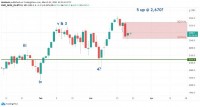|
Opalesque Industry Update - A growing number of companies are switching to Chinese
currency Renminbi (RMB) for their Chinese business according
to a representative survey carried out by Deutsche Bank
among companies in the UK, Germany and the Netherlands.
Currently, 20% of companies carry out their invoicing in
Renminbi, with the remaining 80% stating that switching
their invoicing over to Renminbi is already in the pipeline.
By moving over to Renminbi, companies can lower prices in
negotiations with Chinese business partners by an average of
4.8%. "We are seeing a growing trend towards the use of Renminbi transactions, particularly from SMEs," says Nils Ole Matthiessen, Head of Global Finance & Foreign Exchange Structuring Germany & Austria. In doing so, companies are taking advantage of a number of benefits. They are expanding their network of suppliers and buyers by bringing on board more Chinese companies who, in the past, only had limited access to western currency. They are also improving their negotiating position with Chinese customers and suppliers. "What's more, transaction costs are reduced and buyers can secure price reductions of an average of almost 5%," says Nils Ole Matthiessen. In spite of increasing volatility in foreign exchange markets, only around half of companies that were surveyed hedge foreign exchange risks in Renminbi transactions. For companies themselves, the greatest obstacles in international foreign exchange transactions are the slow payment process (approx. 30%) and difficulties in obtaining approval for payments from the Chinese authorities (approx. 15%). "Processes which accelerate or simplify payment processes in Renminbi helps European companies to strengthen their competitive position in China," says Nils Ole Matthiessen. In June earlier this year, Deutsche Bank became the first bank to introduce cross-border RMB payment processing in the form of a pilot project with the Chinese central bank. The simplified RMB cross-border payment scheme allows certain China-based companies to invoice and settle cross-border trades in Renminbi without having to provide documentation for pre-trade verification. Currently, banks are required to physically check the documentary proof of each underlying trade transaction before they can process a RMB payment on behalf of their corporate clients. Trade outside of China using the Chinese currency Renminbi currently amounts to around USD 2 billion per day, meaning that trade in the currency pair USD/RMB has doubled in volume over the past 15 months (May 2011: USD 1 billion). Cross-border RMB processing volume rose year-on-year by 42% to RMB 1.4 billion in the first half of 2012. Deutsche Bank processes between 20 to 30% of global trade in Renminbi (outside of China) through its systems.
Information on the survey: (press release) Deutsche Bank is a leading global investment bank with a substantial private clients franchise. Its businesses are mutually reinforcing. A leader in Germany and Europe, the bank is continuously growing in North America, Asia and key emerging markets. With more than 100,000 employees in more than 70 countries, Deutsche Bank offers unparalleled financial services throughout the world. The bank competes to be the leading global provider of financial solutions, creating lasting value for its clients, shareholders, people and the communities in which it operates. www.db.com Bg |
Industry Updates
SMEs are switching to Renminbi for Chinese business according to Deutsche Bank survey
Tuesday, August 28, 2012
|
|





 RSS
RSS







